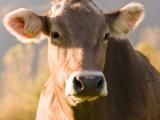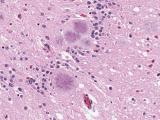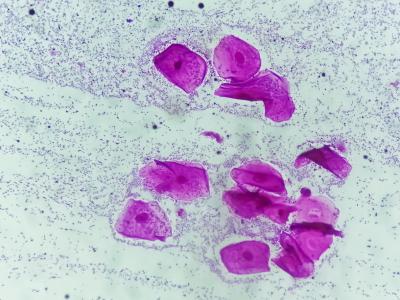Jun 30, 2004 (CIDRAP News) Another inconclusive result on a rapid screening test for bovine spongiform encephalopathy (BSE) was announced late yesterday afternoon by the US Department of Agriculture (USDA).
The second inconclusive test came 4 days after the first one was announced Jun 25. A USDA laboratory in Ames, Iowa, is now doing confirmatory testing of tissue samples from both cattle. Because the additional tests could rule out BSE, the agency has not disclosed where the cattle came from, where the screening tests were done, or any other details.
"The inconclusive result does not mean that we have found another case of BSE in this country," said Dr. John Clifford, deputy administrator of the USDA's Animal and Plant Health Inspection Service (APHIS), in a prepared statement. Repeating comments he made in announcing the previous inconclusive test, he added that screening tests are designed to be extremely sensitive and some inconclusive results are expected.
"The carcass has been accounted for and is not in the food supply," Clifford said.
The use of rapid screening tests began with the expansion of USDA's BSE surveillance Jun 1 as a result of the discovery of a single case of BSE in Washington state last December. The agency plans to screen more than 200,000 cattle over the next 12 to 18 months to assess the existence or prevalence of BSE in US herds.
The USDA's National Veterinary Services Laboratory in Ames is conducting the confirmatory tests, and results in the second case are expected in 4 to 7 days, Clifford said. He promised to provide more information about the animal and its origin if the test comes back positive.
Clifford said the USDA would hold a technical briefing on the BSE testing program later today.
"USDA remains confident in the safety of the US beef supply," Clifford said. He said the exclusion of specified risk materialstissues most likely to contain the BSE agent in an infected cowfrom the food supply would protect the public if more cases of BSE were found.
BSE screening tests were conducted on 8,585 cattle in the first 4 weeks of the expanded surveillance program, according to APHIS figures.


















